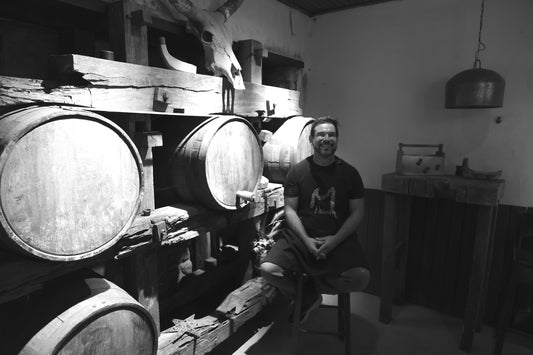
A Comprehensive Guide to Specialty Coffee
- Introduction
- Definition of Specialty Coffee
- Brief history of Specialty Coffee
- Importance of understanding Specialty Coffee
- The Basics of Specialty Coffee
- What is Specialty Coffee?
- Criteria for Specialty Coffee
- Coffee Scoring
- Bean Quality
- Sourcing of Specialty Beans
- Regions famous for Specialty Coffee
- Latin America
- Africa
- Asia
- The role of environment in flavor
- Processing Methods
- Washed (Wet Process)
- Natural (Dry Process)
- Honey and Semi-Washed
- Roasting Specialty Coffee
- Roasting Techniques
- Light
- Medium
- Dark
- Impact on Flavor
- Brewing Techniques
- Espresso
- French Press
- Pour Over
- Cold Brew
- Tasting and Flavor Profiles
- How to Taste Coffee
- Understanding Flavor Notes
- Baristas and Specialty Coffee
- Skills Required for Specialty Coffee Preparation
- The Role of a Barista in Promoting Specialty Coffee
- Economic Impact of Specialty Coffee
- Impact on Local Economies
- Prices in the Market
- Sustainability and Ethical Considerations
- Sustainable Practices in Coffee Growing
- Fair Trade and Its Importance
- Future Trends in Specialty Coffee
- Innovation in Coffee Production and Brewing
- Increasing Popularity and Consumer Demand
- Challenges Facing the Specialty Coffee Industry
- Climate Change
- Economic Pressures
- How to Get Started with Specialty Coffee
- Selecting Your Coffee
- Finding Local Specialty Cafes
- Summary
- FAQs
Article: A Comprehensive Guide to Specialty Coffee
---
- Introduction
Specialty coffee is more than just a morning ritual or an energy boost; it represents the pinnacle of coffee quality, characterized by unique flavors and high standards from bean to cup. An understanding of specialty coffee provides consumers with insights into coffee's rich culture and complex chemistry, and it highlights the artisans who dedicate themselves to creating extraordinary coffee experiences. In this guide, we’ll explore all the facets of specialty coffee, from its origins to advanced brewing techniques.
- The Basics of Specialty Coffee
What is Specialty Coffee?
Specialty coffee refers to the highest grade of coffee available, typically scoring above 80 points on a 100-point scale by certified coffee tasters known as Q-graders. The criteria for this coffee encompasses not only the quality of the beans but also the way in which the coffee is cultivated, harvested, and processed.
Criteria for Specialty Coffee
*Coffee Scoring*: Each coffee batch is scored on aspects like aroma, flavor complexity, and balance.
*Bean Quality*: Only the best beans, free from defects and with distinctive characteristics, qualify as specialty.
- Sourcing of Specialty Beans
Regions famous for Specialty Coffee
*Latin America*: Known for balanced and clean coffees with fruity notes.
*Africa*: Celebrated for its floral and complex fruit flavors, especially coffees from Ethiopia and Kenya.
*Asia*: Offers earthy and richly spiced coffees, particularly from Indonesia.
The role of environment in flavor
The local environment, or terroir, influences bean flavor significantly, affecting everything from soil composition to climate.
- Processing Methods
Washed (Wet Process)
This method involves removing the coffee cherry’s outer layer before the beans are dried, resulting in a cleaner, brighter cup.
Natural (Dry Process)
Here, the entire cherry is dried before processing, imparting a sweeter, fruitier flavor profile to the coffee.
Honey and Semi-Washed
These are intermediate methods that give the coffee unique flavor nuances, often leading to a body that is both rich and delicate.
- Roasting Specialty Coffee
Roasting Techniques
*Light*: Emphasizes the bean’s original characteristics.
*Medium*: Provides a balance between the bean's natural flavors and the flavors developed during roasting.
*Dark*: Characterized by smokier, more intense flavors.
Impact on Flavor
The roasting process is crucial as it transforms the raw, green beans into the flavorful beans that we use for brewing.
- Brewing Techniques
From Espresso to Cold Brew, each technique impacts the extraction and flavor profile of the coffee, addressing different consumer preferences and occasions.
- Tasting and Flavor Profiles
How to Taste Coffee
Tasting, or 'cupping', involves deeply sniffing the coffee, then loudly slurping it to aerate it over the palate. This process highlights both subtle and bold flavor notes.
Understanding Flavor Notes
Coffee flavors can range from citrus and floral notes to chocolate and nuts, depending on the origin and processing of the bean.
- Baristas and Specialty Coffee
Baristas play a key role not only in brewing but also in educating consumers about the various aspects of coffee, enhancing the overall coffee experience.
- Economic Impact of Specialty Coffee
The specialty coffee market significantly contributes to local and global economies, supporting millions of families worldwide.
- Sustainability and Ethical Considerations
It's essential to promote sustainable practices and fair compensation in the coffee industry to ensure its future.
- Future Trends in Specialty Coffee
With innovations in production and an increase in consumer interest, specialty coffee is set to grow even further.
- Challenges Facing the Specialty Coffee Industry
Challenges like climate change and market fluctuations pose risks to coffee quality and production.
- How to Get Started with Specialty Coffee
Tips for beginners include starting with single-origin coffees and visiting expert local cafes to taste and learn.
- Summary
Specialty coffee is not just about premium quality but also about appreciation and sustainable practices that benefit many layers of society.
- FAQs
- What differentiates specialty coffee from regular coffee?
- How can I tell if a coffee is truly specialty grade?
- Where can I find the best specialty coffee?
- How should I brew specialty coffee at home to maximize its flavors?
- What are some common mistakes in brewing specialty coffee?
---
SEO Resume
The article, "A Comprehensive Guide to Specialty Coffee", integrates strategic keywords such as "specialty coffee", "brewing techniques", "coffee quality", and regional keywords like "Latin America", "Africa", and "Asia". The use of these keywords throughout the headings and body of the article will optimize search engine visibility. The rich, informative content ensures reader engagement and longer page visits, aligning with SEO best practices.
Tags: Specialty Coffee, Coffee Brewing, Coffee Roasting, Sustainable Coffee Practices, Coffee Tasting, Coffee Regions


